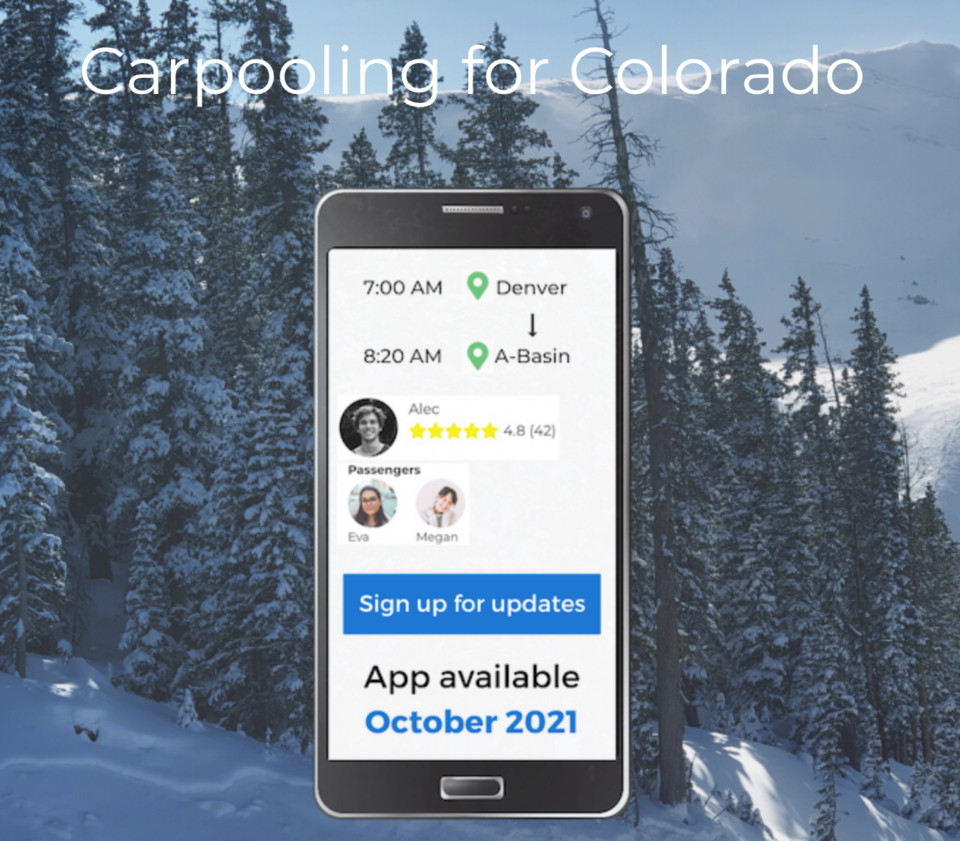Earlier this month, the Colorado Department of Transportation, or CDOT, announced that carpool apps are now legal in Colorado.
According to CDOT Spokesperson Tim Hoover, previously, carpool apps were not ‘outlawed’ per say. Instead, carpool apps did not exist because they were being treated legally as though they were transportation network companies, or TNCs such as Uber and Lyft, and required to register with the Public Utilities Commission and pay a $111,250 fee to operate.
Carpool apps differ from TNCs in that they are not profit-making enterprises. Instead, the carpool companies make a small profit from small fees that riders pay to use the app platform.
“Carpool apps had been treated the same way as TNCs and, as a result, no one was going to do it,” Hoover said. “So the legislature passed a law saying we’ll allow these apps to not be treated like TNCs.”
Now, the only requirement for carpool companies to operate is to be registered with CDOT.
According to CDOT's website, once a carpool company is functioning, they should adhere to the law that “limits a carpool to no more than six passengers, not including the driver and to no more than one round trip per day, which would have to be no less than 23 miles each way.”
The minimum distance requirement of 23 miles is waived for carpools to ski areas to promote ski resort workers ride together, the website says.
Unlike Uber and Lyft, people who sign up to be drivers for the carpool apps are not required to get background checks.
CDOT wants to clarify that they do not have any liability in terms of the carpool apps, Hoover said -- people should use common sense and use the apps at their own risk.
The carpool apps are aimed for people wanting to travel somewhere but not wanting to spend the full amount of money on gas to get there, worry about parking once they arrive, etc. People can use these apps to travel to a concert at Red Rocks, to an event in Fort Collins or take a trip to Vail Ski Resort, for example.
The most obvious application for carpool apps, Hoover said, is for people traveling along the mountain corridor during ski season.
The high traffic congestion on 1-70 during ski season has recently caused CDOT to build an eastbound express lane for people returning home from the ski mountains. Soon, CDOT plans to build a westbound lane and implement a new bus system to help with this same issue, according to Hoover. He hopes that carpool apps might also help to alleviate the problem.
“(Carpool apps) are a way to hopefully reduce congestion on the 1-70 mountain corridor during these busy times and, in doing that, reduce emissions and allow people to split costs (for rides).”
On October 1, carpool companies can begin to operate if they are registered with CDOT. Two Colorado-based carpool apps, Gondola and TreadShare, are expected to launch next month, Go I-70's website states.
“If we can get more people to ride in cars together, there are fewer cars on the road and less emissions,” Hoover said. “It’s just a good idea all around.”



